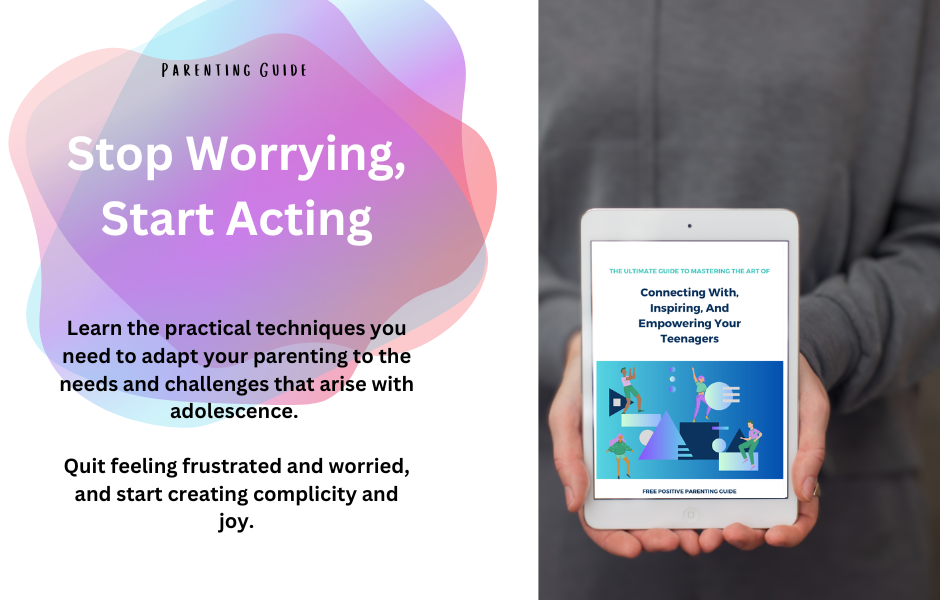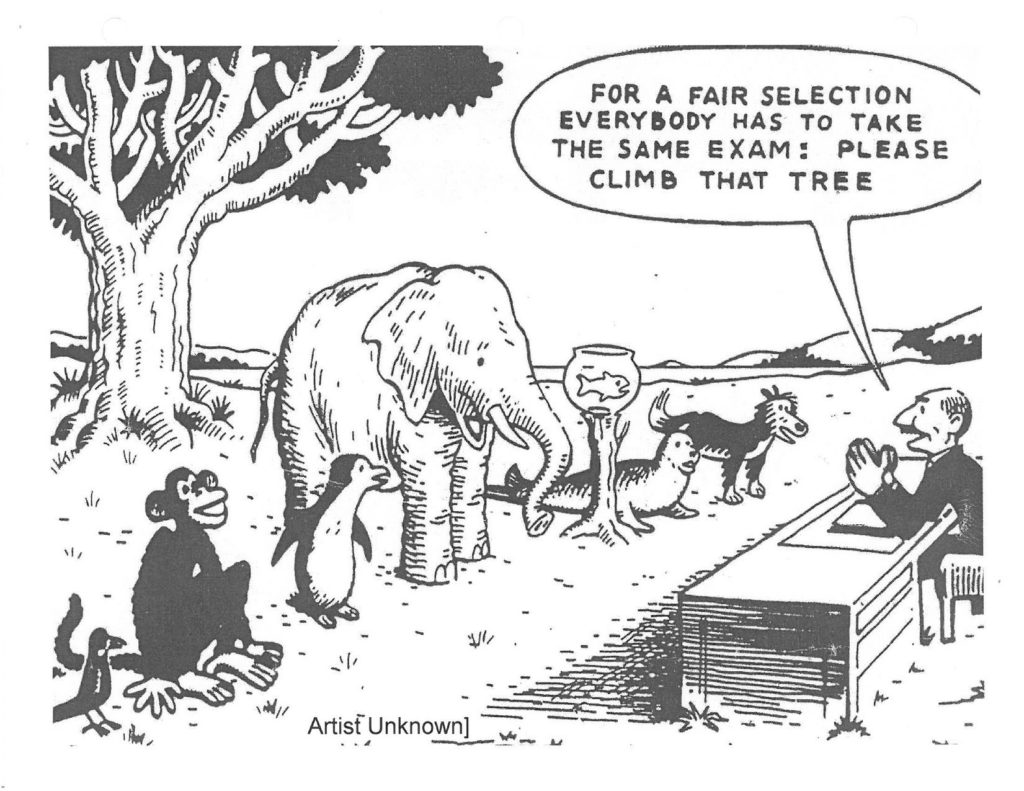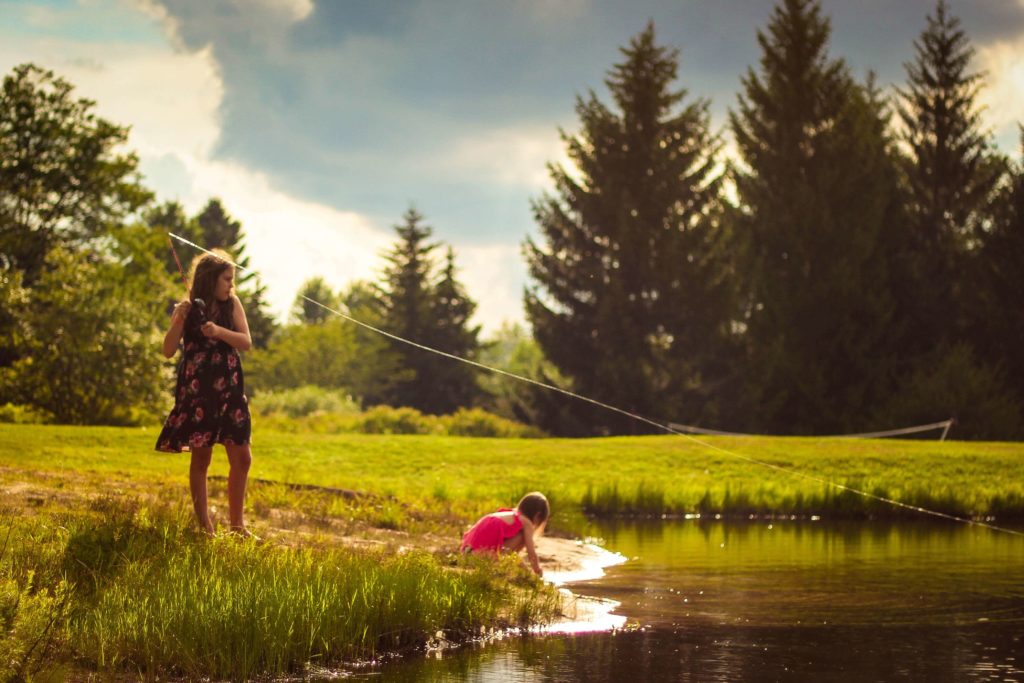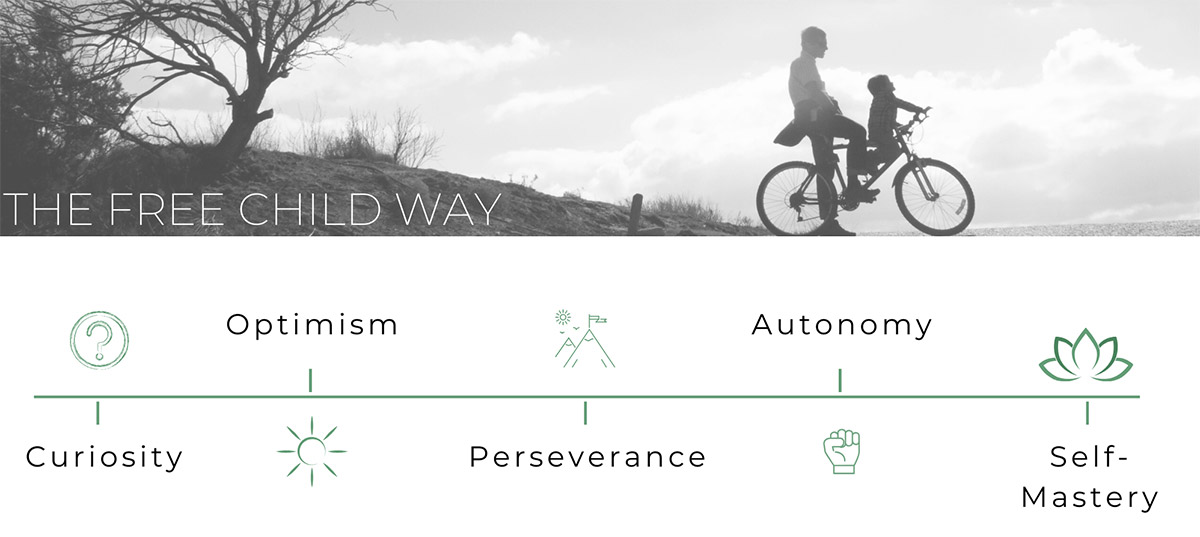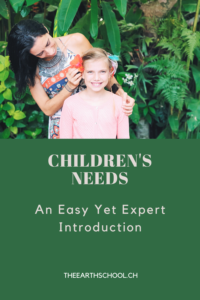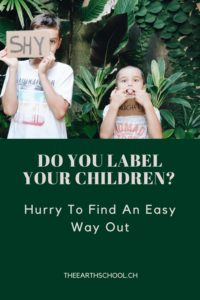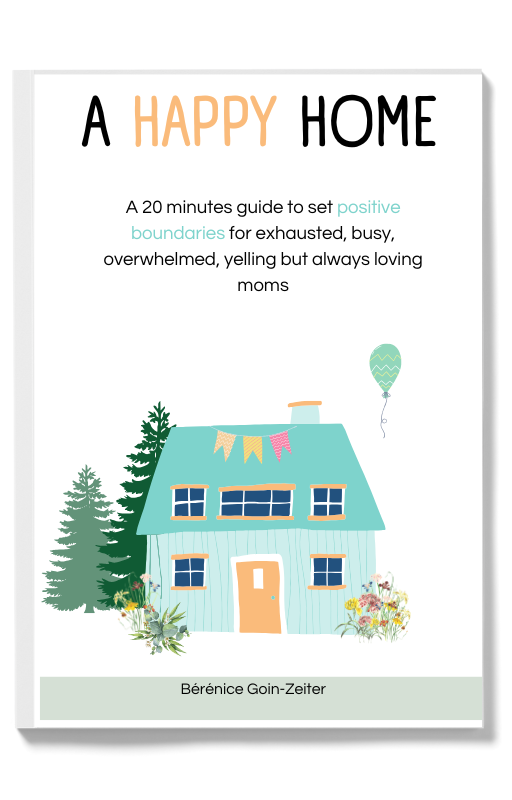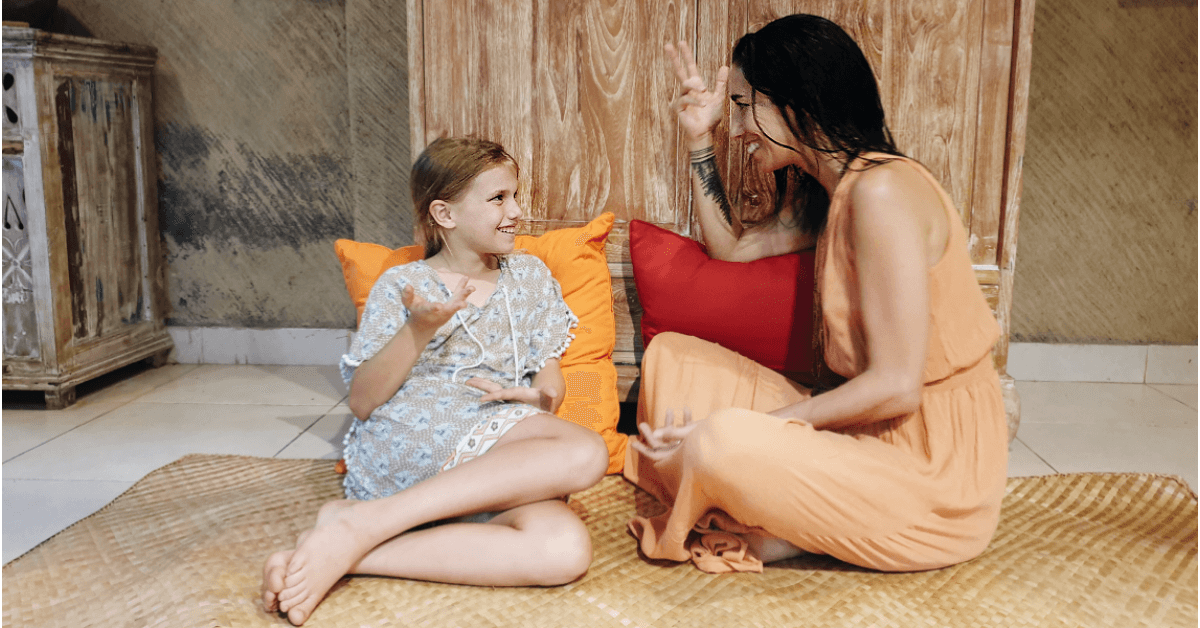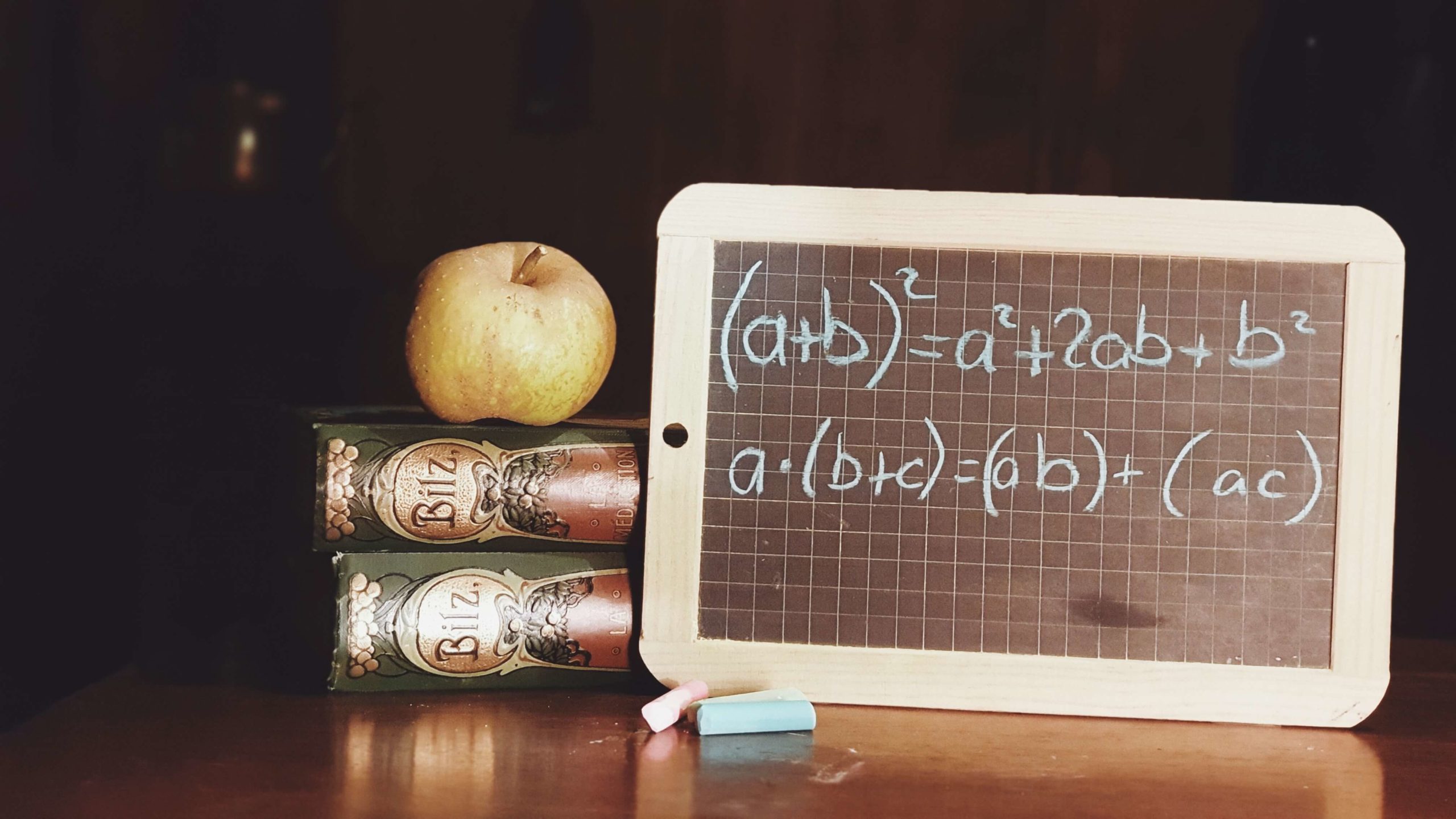
#12 Is Academic Education Killing Important Life Skills?
In the past decades, schools have put more and more focus on academic knowledge. With every reform, educators and politics said things like “the level is going down, let’s put more academic hours and let’s start younger”.
As a result, there is more and more pressure on pupils. It has come to a point where failing at school implies failing your life. Nowadays, as school starts again and many children have to cope with online education, where newspapers write about how far children are falling back and wonder how they will catch up, I felt it was needed to take a step back and get some perspective.
Don’t have time right now? Download the PDF version
The school has a central part in children’s life. They dedicate several hours a day acquiring knowledge, and then several others repeating and preparing for their evaluations. Hence, as a parent, you might wonder if this is what your child needs. If this is actually helping him now and if this will help him, as an adult, to live a fulfilling and meaningful life.
From what you learned at school, how much do you remember? Did you learn a second language? Are you fluent? Children are very quick at learning languages, you can ask any bilingual family or traveling families. So how come they don’t master a language in 5 or sometimes 7 years?
As a teenager and then as an adult, I could tell I was missing some bricks in my foundations. I was a wreck of anxiety, yet nobody ever taught me how to deal with my emotions. Also, I was willing to do many things but lacked the confidence, I didn’t know how to create, how to do things when there weren’t clear instructions.
Some fair questions arise then: will this specific academic knowledge be transferable to fields other than school? Is this knowledge what children need to succeed? What are universities and companies looking for? What do you truly need to live a happy life, one you chose?
Academic Education, Soft skills and Careers
Good marks and good school background will open doors to children. But good students don’t always make good employees as you can read in this article. One of the challenges that are discussed is the lack of direction. Students are so used to learn what we tell them to learn and to do what we tell them to do, that they don’t get a chance to practice autonomy. The same problem with the lack of feedback or appreciation, there is no more test score to tell people their value or where they stand, and they lack the self-confidence and experience to evaluate themselves.
In this article from a UK company that specializes in jobs for graduate, we can find this list of the top 10 skills to find a job:
- Commercial awareness
- Communication
- Teamwork
- Negotiation and persuasion
- Problem-solving
- Leadership
- Organization
- Perseverance and motivation
- Ability to work under pressure
- Confidence
So should you stick to STEM courses and send your child into the world? That it not what you should do, according to a research conducted by Google and called Project Oxygen. They did study all their data about hiring, firing and promoting since 1998, and guess what are the seven top skills?
- Being a Good Coach
- Communicating & Listening Well
- Possessing Insights into Others (Including Others’ Different Values & Points of View)
- Having Empathy Toward & Being Supportive of Colleagues
- Being a Good Critical Thinker & Problem-Solver
- Being Able to Make Connections Across Complex Ideas
Yes, not one hard skill such as those we find in science, technology, engineering, and mathematics. Then Google did a second study, called Project Aristotle, to analyze inventive and productive teams. And here are the top skills of the most successful teams at Google:
- Equality
- Generosity
- Curiosity Toward the Ideas of Your Teammates
- Empathy
- Emotional Intelligence
- Emotional Safety (Which means each team member must feel confident speaking up and making mistakes. They must know they are being heard without the risk of bullying.)

Interestingly, you go to school all your childhood, you work hard to make it to a good University, you work even harder to get your degree, and in the end, what we ask of you are things you were never taught in school. You can acquire those soft skills in many ways: at home with your family, practicing a sport or an instrument, being part of a community, but since it is not taught, not developed and nurtured specifically, it will more depend on your temperaments and natural inclines than on your education.
What About Entrepreneurs, Academic and Life Skills?
Maybe you’re not interested in employee traits as you wish for your children to become entrepreneurs, artists, craftsmen,… What about those self-employed persons? They seem freer than employees. They might have found the answer of “how to stop trading time for money?” What do they have in common? And do they build their success on academic knowledge or life skills? On that note, I would like to say that several very successful persons have shared their habits and they do read a lot of books. So curiosity and perseverance are a must. And in defense of academic knowledge, I will say that knowing how to read is one too!
In an article published in Forbes, Kyle York, Vice President, Product Strategy at Oracle Cloud, explains that he got to speak with thousands of entrepreneurs as an investor, and here is what he looks for:
- hustle: you have to want it.
- to have a vision: and the ability to articulate that vision to people and take the actionable steps to accomplish it
- good translators: the ability to speak the specific languages of their diverse audiences
- motivation: and the ability to identify what that motivation is early on in the process
So we’ve got: determination, creativity, adaptation, motivation.
StartupNation in an article on what does it take to effectively launch a business give those 10 common traits to successful entrepreneurs:
- Vision
- Passion
- Tenacity
- Willingness to work hard
- Confidence
- Flexibility
- Can sell
- Prudent with money
- Willing to ask for and accept help
- Resilience
So tell me real quick, do you plan on teaching any of these this year? My feeling is that homeschool families focus on academics and creativity, hoping that abstract skills (soft skills) will develop. That is partly true, and children who have a homeschool education have way more chances to develop those skills than pupils in a traditional school. But real focus and reflection should be put on soft skills, not just hope and goodwill.
In this article from entrepreneurs.com we can read:
“Welcome to the tech and coding age where new skill sets develop and the previous ones fade away in no time. (…) Does that mean that education is absolutely futile? The answer is ambiguous. One cannot rule out the necessity of having a degree in hand. But considering the volatile and ever-evolving market, the demand for skill sets has definitely overpowered the basic education needs.”
What Skills Do Artists Need?
Well, artists need a completely different set of skills. They need to take risks, and not being afraid of making mistakes or of what people might think (you know this poem or this drawing you’ll never dare to show anyone because you’re too afraid of judgment?). They need to master motivation as it is not an easy path, as well as resilience. They will need these skills to follow their choice of an artistic career, but as an artist they also need to be observant, to be original and to be sensitive.
This is what I found when I searched academic knowledge and artistic career: “Unlike being an engineer or doctor, you don’t need a degree in art to be a fine artist. An art degree doesn’t do much for you unless you’re getting into teaching at certain types of schools”.
Being an artist requires a lot of self-confidence. One of my dearest friends is an artist, her name is Amelie Desjardins. I traveled with her and her family for months and months, and I’ve learned so much about confidence and about daring to be your true self with her, I am forever grateful. She did show me that I could do anything I wanted. And I did. I created the Earth School. I went way out of my comfort zone after gathering enough self-confidence to do so.
The Gap Between The Offer And The Needs
And yet, you have preschoolers who spend hours learning mathematics and letters… In Junior Kumon preschool programs, your toddler can practice reading and mathematics since he’s 3 years old. In an article from the New York Times, we can read that “PARENTS pay $200 to $300 a month for their 2-, 3-, 4- or 5-year-old to spend up to an hour twice weekly being tutored at a Junior Kumon center — 20 to 30 minutes each on reading and math. Children are then expected to do 20 minutes of homework on each subject every day, with their parents guiding and grading them.”
I am amazed to read that. And since this is my blog, I say it as I feel it. With all we know about child’s development, with the proven benefits of free play with younger children, with the knowledge that before 6 or 7, children learn through their senses and not in an intellectual way, we still try to fill our kids’ heads and teach them tricks as we would with apes?
Here is what you can expect from a Kumon program:
“ON command, Eze Schupfer reads aloud the numbers on a worksheet in front of her: “42, 43, 12, 13.” Then she begins to trace them.
“Is that how we write a 12?” her instructor, Maria Rivas, asks. “Erase it.”
“This is a sloppy 12, Eze,” she says. “Go ahead: a one and a two. Smaller. Much better.””
That kid is 3. If she isn’t a genius, what she’s doing makes absolutely no sense to her. For me, this is such a waste of time and vital momentum…
A study made in homeschool families shows that children who are home educated sometimes learn to read later, some as late as 9 or 10. And the study shows that once they read, they catch up quickly, become better and more eager readers than other kids. Why is that? Because the school makes children read at a convenient time for the school, not for the child. As a matter of organization, they need kids to be able to read, for efficiency. Would you say that being forced to learn to read is a good approach to nurture book lovers?
I am not saying you shouldn’t teach your child to read. But everyone’s different. At 4, I was reading books to my classmates, and yet my eldest son learned at 8. Now he’s 12, reading fluently in English and in French and loving every minute of it!
Are Life Skills More Important Than Academic Education?
In my opinion, the real question is: why would there be one or the other? Academic knowledge is useful, it answers curiosity and broadens one’s horizon. Many of the things I know, I learned them in the books I read. It would have taken me 10 lives to discover, experiment, and understand it all by myself.
Learning to read is one of the greatest freedom. Learning to count is a world of endless wonder. Learning about science makes the world more accessible and interesting. Learning about technology allows us to navigate our world and make the best of it.
But why stick to that? Of course, academic knowledge is easier to teach as it is clear. Life skills are more subtle, we don’t know how to stimulate, encourage, and develop them. But if we want our children to live their lives as they like, we cannot comfort ourselves in old ways.
Our world has changed more in the past decades than in centuries before that, and what we learned as kids aren’t adapted to our modern world anymore. I learned that I should get good training, then a good job and then stick to it. My grandpa had the same job in a factory for 30 years. My mom worked for 25 years in her first workplace. That doesn’t happen anymore. I mean, I learned how to use a typewriter!
We don’t have the ability to foresee how the world will be in 10 or 15 years. Our grand-parents could still do that. But we can’t. And who knows what knowledge will be useful then? Doesn’t it sound smart to teach our kids the right skills to navigate any life, in any version of our world, to be resourceful enough to overcome challenges we can’t even imagine, and to make the best of their time on this beautiful planet?
Are Practical Skills Part of Life Skills?
As homeschoolers, you certainly implement several practical skills in your education, such as cooking, gardening, using tools,… Through those skills, children learn autonomy and can start to make connections between academic knowledge and real life. For example, academic knowledge about the seasons is helpful when you want to have a vegetable garden, knowing some basics about nutrition is a good thing if you like cooking,…
So yes, practical skills are part of the life skills family. They are essential to developing a whole bunch of things in your children, such as motor skills, problem-solving, or just be able to actually survive as an adult one day!
Maybe you are fully aware of this and you also teach your children how to take care of animals, or how to make a budget, buy groceries and sew or knit. Every practical skill you help your child to develop is a big win, from learning look something up on the internet to fixing a tile on the roof, it doesn’t matter, children learn much more when they DO than when they LEARN. Children LEARN all the time, especially when they are DOING things.
What Skills Are Needed To Complete Academic Knowledge?
You will have understood that the academic knowledge we teach our children is far from enough. They will have to face many challenges: global warming, weakening of democracies, aging population, over-population,… Projections also show that many jobs will disappear in the next 20 years due to automation and making a living will become more complicated.
Academic knowledge is still important of course, and if you can try to make it less compartmentalized, more global, with more links between the subjects it will be a huge bonus for your children. Who said history and politics and art cannot be part of the same class?
But that is still only half the problem. The UNESCO actually made a list of the most important life skills. As they are many definitions of life skills, I’d like to specify that the UNESCO sees them as “psychosocial and interpersonal skills that are generally considered important”. Here is the list:
- problem-solving
- critical thinking
- effective communication skills
- decision-making
- creative thinking
- interpersonal relationship skills
- self- awareness building skills
- empathy
- coping with stress and emotions.
Don’t want to lose that list? Download our Cheat Sheet Here!
These are essential, don’t postpone and start implementing those skills in your education starting today. Those skills, mixed with some wise knowledge, are what will make your kid’s life meaningful and beautiful. If your child master these skills, he can learn anything, overcome any challenge, reach any goal,… In other words, he will be free.
Because that’s what’s important isn’t it? Our societies, especially now, make us feel less and less free. We feel like our choices are reduced. There is a lot of fear, for employment, money, health, education,…
Imagine how you would feel if you KNEW that you could overcome anything.
If you had the confidence you can make it.
If you had the perseverance and resilience to keep going and to reach your goals.
If you had the curiosity and the ability to learn everything you need in order to be successful.
If you were able to solve complex problems, to think critically about what you hear and to make your own decisions.
If you were aware of your emotions and able to use them wisely without having to suppress them or to be influenced by them.
Wouldn’t that be amazing? I know I would LOVE that!!! Which is why it is what I try to learn and what I teach to my children. They learn academic knowledge, but every time I can, I will focus more on the “how to learn” rather than “what to learn”. You know, my mom has been a social worker, working as an educator for 30+ years, and one day, she came home and she told me: “I understood! I understood!
[Tweet “You don’t have to feed them with fish: you have to #teach them how to fish!”]
What’s The Conclusion Then?
Academic Knowledge or Life Skills?
I can only speak from my heart here, and I will.
Academic knowledge is very specific: for every age, it is decided what you should learn and how you should learn it. It is also clearly subdivided and evaluated. The thing is, when you read philosophers, sociologists, or psychologists, what they say is that we are not teaching you the knowledge, we are teaching you a way of life: do as you’re told, compete with others, listen to the authority figure and as a reward for the freedom you sacrifice, we will give you peace of mind. You don’t need to think. You don’t need to choose.
And I’m sure that is satisfying for some people. Nowadays, deciding to be free means to live somehow out of society. Maybe you homeschool your children, maybe you have a homestead and don’t work, maybe you travel and are nomadic, maybe you are an artist,… Freedom comes with a cost: less peace of mind, more decisions to make, more problems to solve by yourself. And yet…
There are so many beautiful wonders in this world we can share with our children. We can make the world accessible to our children, give them the keys. We can love them unconditionally. We can trust them and develop their autonomy.
What we cannot do is to teach them anything. I know, I know, I’ve used the verb to teach a lot so far, so I’ll try to be clearer:
- You can teach through your living example
- You can teach by creating the right environment for your children to learn
- You can teach by giving them a chance to experiment and then reflect together.
But you cannot fill your children with knowledge.
Open the world to them, listen to classical music and explain to them how to listen to it, tell them about the period this specific piece was written, by who, for whom, on what occasion, who paid, give them a context, help them practice to think more globally.
Classical music isn’t just about music: there is history here, economics, politics, there are instruments and people,… Let your child’s interest decide on the focus, on the path, and be attentive to feed them with curiosity, wonder and pleasure to learn.
With the right life skills: curiosity, optimism, perseverance, autonomy,… your children could learn anything, become anything, achieve anything. They don’t need to be Tennis champions at 12 or to have written their first book by 20. They need to develop their full potential, and this lays in life skills, not in academics.
Education’s purpose is to replace an empty mind with an open one.
- Malcolm Forbes

A PDF version of this article? The Cheat Sheet? Wanting to join the newsletter to know about the next blog post? That’s the place!
Thanks for reading this article!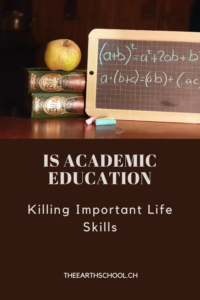
As always, I hope it gave you some line of thoughts to explore as well as ideas to act and create a positive change in your life.
Don’t let the inspiration fades and take action right away:
1. Download our cheat-sheet, it’s on the house
2. Decide on the one action you will implement today and write it down
3. Share this article with 3 friends who could benefit from it
4. Save the article in your favorites
I wish you all the best with your kids, always remember that we all do the best we can at a given moment and don’t judge yourself harshly. Be confident and listen to your intuition. If what you do comes from a place of love, then you’re on the right path.
See you next week for another exciting article!

Don’t Forget To Join Our Community To Get Inspiration And Tips Straight in Your Mailbox
I wish you all the best with your kids. Always remember — we’re all doing the best we can in any given moment, so try not to judge yourself too harshly. Be confident and listen to your intuition. If what you do comes from a place of love, then you’re already on the right path.

If this post resonated with you — if you’ve ever walked ten paces behind your child, wondering if you’re ruining everything — come join us on Instagram.
It’s where I share reminders, reflections, and the odd parenting confession… for mums figuring it out one heart-twinge at a time.
If you want more resources, ⬇️ keep scrolling ⬇️
Looking for a way to set boundaries that feel fair for everyone? Here’s your home guide to healthy boundaries.
If your child is or is becoming a teenager, check out our parenting guide for teenagers!
